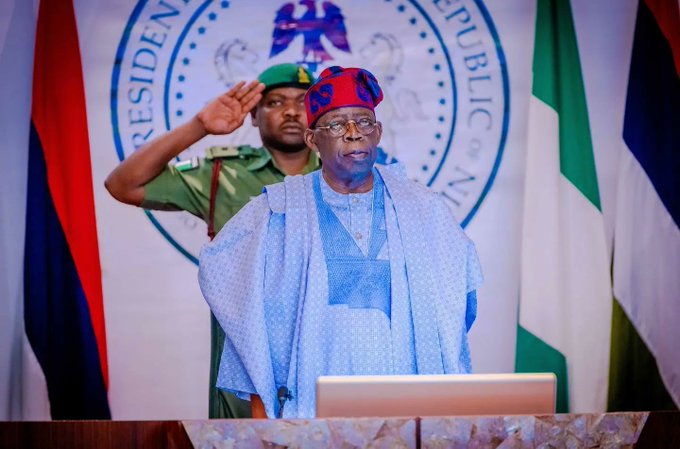Some reports have surfaced recently, alleging that International Oil Companies (IOCs) have refused to supply crude oil to local refineries thereby hampering the ability of such local refineries to deliver petroleum products to the country as directed by the government.
Indeed, this complaint was first loudly echoed by Devkumar Edwin, Vice President of Oil and Gas at the Dangote Industries Limited (DIL), owners of the Dangote Refineries, along with other stakeholders in the industry. In his words: “It would be recalled that the Nigerian Upstream Regulatory Commission (NUPRC) met with crude oil producers as well as refinery owners in Nigeria in a bid to ensure full adherence to Domestic Crude Oil Supply Obligation, as enunciated under Section 109 (2) of the Petroleum Industry Act (PIA). It seems that the IOCs’ objective is to ensure that our refinery fails…. The IOCs are deliberately and wilfully frustrating our efforts to buy the local crude.’’
Devkumar’s allegation was supported by the Crude Oil Refiners Association of Nigeria (CORAN). The Chairman of CORAN, Momoh Oyarekhua, stated that the scope of the blame should be widened to include the producers of crude oil in Nigeria; not just the IOCs.
In the same vein, others blamed the Nigerian National Petroleum Company Limited (NNPCL) for the inability of crude oil supplies getting to the local refineries. In his view, a petroleum economist, Kelvin Emmanuel, stated that NNPCL had failed to honour its 300,000 barrels per day in feedstock for its 20 per cent equity contribution to the Dangote Refinery. “It is surprising that NNPCL which owns an equity stake in the Dangote Refinery and is the apex oil conglomerate in the country, cannot guarantee the supply of crude oil to local refineries.’’
- SSANU, NASU protest non-payment of salaries, threaten strike
- Suspend Samoa Agreement’s implementation – Reps tell FG
From all indications, it would appear that the issue is so complex that only the force of government intervention can resolve it. Interwoven in the gamut of issues are the factors of pricing, transportation of the crude through pipelines to the refineries, capital investment on ancillary projects. There are also joint venture agreements between the NNPCL and the IOCs on how to run the technical aspects of crude oil production and distribution in the country’s oil and gas value chain.
It is quite clear that the NNPCL, which is supposed to look out for the national interest in all these, has not lived up to expectation. Even before the coming of the Dangote Refinery, the four refineries which come under the purview of the NNPCL had all been virtually non-functioning for some time. It was because of this major failing that the Obasanjo administration gave licences to local entrepreneurs to establish refineries, in order to boost domestic supply of petroleum products. Of the many that got these licences, only a few with Dangote being the most prominent, took up the challenge. There were high hopes that with NNPCL’s equity participation in this gargantuan project of 650,000-barrel capacity, the past issues that brought about the non-functioning of the refineries would not be repeated.
It is about two years now since the Dangote Refinery was commissioned and it is regrettable that it has not been able to pick up the slack of the now comatose NNPCL refineries. There have been statements from both the Group Chief Executive Officer (GCEO), Mele Kyari, and the Minister of State for Petroleum, Heineken Lokpobiri, that the refurbished Port Harcourt Refinery would soon come on stream. But thus far, the refinery had missed the date of its resumption of production several times.
One of the issues that bedevilled the NNPCL refineries had to do with supply of crude, and it is unfortunate that same is allowed to affect the functioning of new refineries in the country. Due to lack of supply of crude to the Dangote Refinery, it had to seek supplies from foreign sources, thereby limiting its ability to refine and supply the product to the Nigerian market. It is a paradox that a major oil producer like Nigeria cannot supply crude oil to its refineries.
But all these should not constitute an excuse for the NNPCL to jettison the responsibility it owes in diligently handling the interest of Nigeria in running the oil and gas sector. This is especially so in the joint venture agreements with the IOCs where they are allowed to dictate the terms to the detriment of the country, as in this particular case of supply of crude oil to the refineries.
Nigerians find this whole situation of the IOCs and the non-supply of crude oil to refineries unacceptable, as it constitutes a stumbling block to government’s efforts towards easing the perennial issue of availability and supply of petroleum products in the country.

 Join Daily Trust WhatsApp Community For Quick Access To News and Happenings Around You.
Join Daily Trust WhatsApp Community For Quick Access To News and Happenings Around You.


